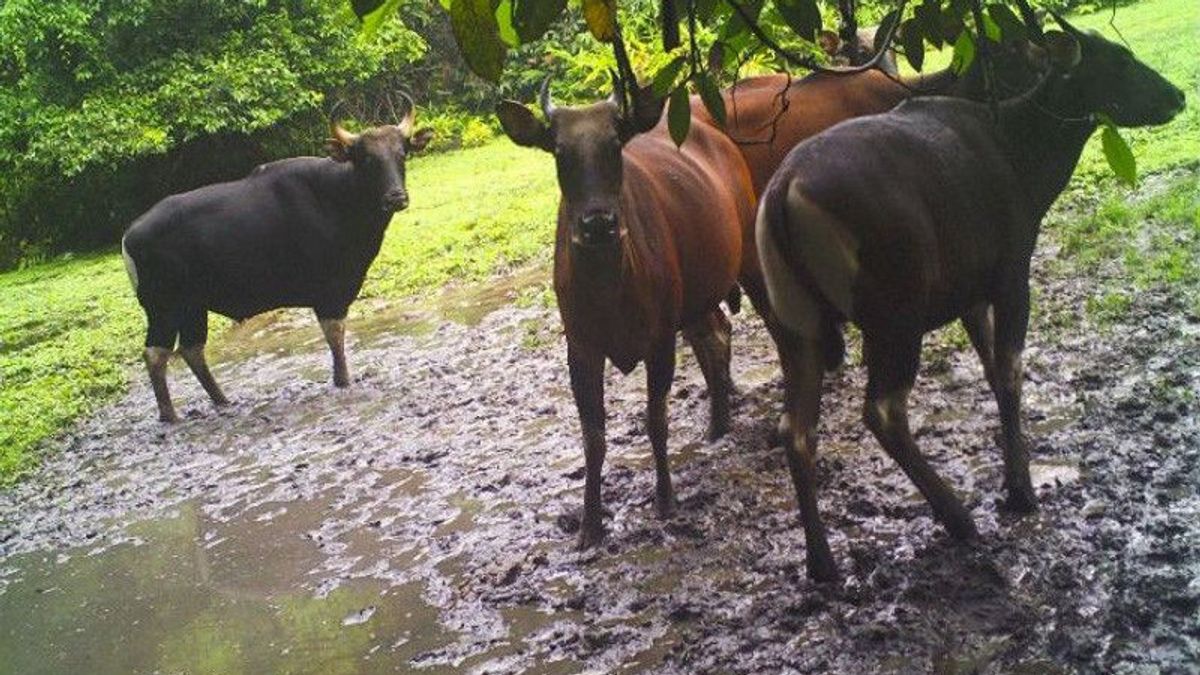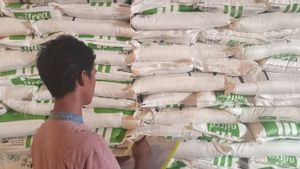PANGKALAN BUN - Kalimantan bull population (Bos javanicus lowi) in the forest habitat of Belentikan Hulu, Belantika Raya District, Lamandau Regency, Central Kalimantan, is decreasing. Approximately 20 bull population remains.
"From our research data through camera capture in 2018, it is estimated that there are only two groups or about 20 Kalimantan bulls in the Belantika Hulu forest," said the Coordinator of the Indonesian Orangutan Foundation (Yayori) Ruset, Gusti Wicaksana at Pangkalan Bun, Tuesday.
Gusti explained, the team from Yayori first conducted research on the Kalimantan bull in the Belantikan Hulu Forest in 2003 by installing cameras at several points. That year it is estimated that as many as 30 to 40 bulls were caught on camera.
"Because the Belantikan Hulu Forest is not a protected forest, but is a production forest with an area of 3,000 hectares, so that outsiders can easily enter, and it is also easy to hunt there," said Gusti.
Apart from the hunting factor by humans, the decline in the habitat of animals that have entered the pendiks is one critical or endangered because of longer reproduction. Moreover, not necessarily all women are productive.
"For feed there is quite abundant, such as bamboo, jokes, nails, and others. For natural predators themselves, the crocodiles are most hunted when the bulls cross the river," he explained.
Another threat to the bull population is the location of the production forest, so there are still many felling trees, thus narrowing the habitat of the Kalimantan bull.
"With the felling of trees, it will have an impact on reducing breeding ground and taking refuge for bulls and other wildlife," explained Gusti.
For Central Kalimantan, animal habitats that are usually more active at night to avoid hunting, and have this high sensitivity are found in the Seruyan area, Lamandau, namely the Belantikan Forest and the Schwaner Mountains area.
"Efforts to anticipate the decreasing habitat of the Kalimantan bull continue to be carried out, as we continue to provide socialization to communities in four villages, namely Nangamatu, Kahingai, Perikan, and Bintang Mangalih villages which are directly adjacent to the Hulu Belantikan Forest," he explained.
Head of the Central Kalimantan Regional Conservation Section (SKW) II Pangkalan Bun Natural Resources Conservation Center (BKSDA) Dendi Sutiadi said his party always coexists with foundations or NGOs engaged in environmental conservation in conducting research and campaigns.
"One of them is Yayori in conducting research on the Kalimantan bull, and we also plan to conduct research on the Kalimantan elephant," he said briefly.
Dendi emphasized that the ban on hunting for Kalimantan bulls refers to Law no. 5 of 1990 concerning Conservation of Natural Resources and Their Ecosystems which contains a prohibition on being hunted, killed, preserved and traded protected wildlife either alive or dead. If you violate the prohibition, you will be subject to five years in prison and a fine of Rp. 1 billion.
The English, Chinese, Japanese, Arabic, and French versions are automatically generated by the AI. So there may still be inaccuracies in translating, please always see Indonesian as our main language. (system supported by DigitalSiber.id)
Most Popular Tags
#Prabowo Subianto #New Year #airplane accident #Hasto Kristiyanto #nataru #squid game 2Popular
31 Desember 2024, 05:24
31 Desember 2024, 05:00
31 Desember 2024, 04:00
31 Desember 2024, 08:00
31 Desember 2024, 00:04













